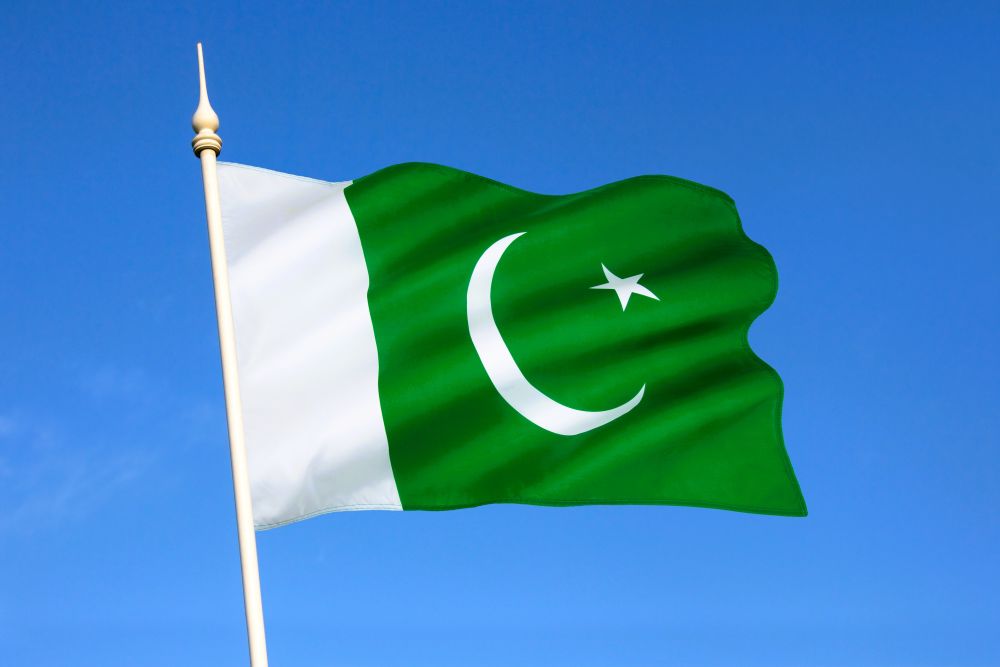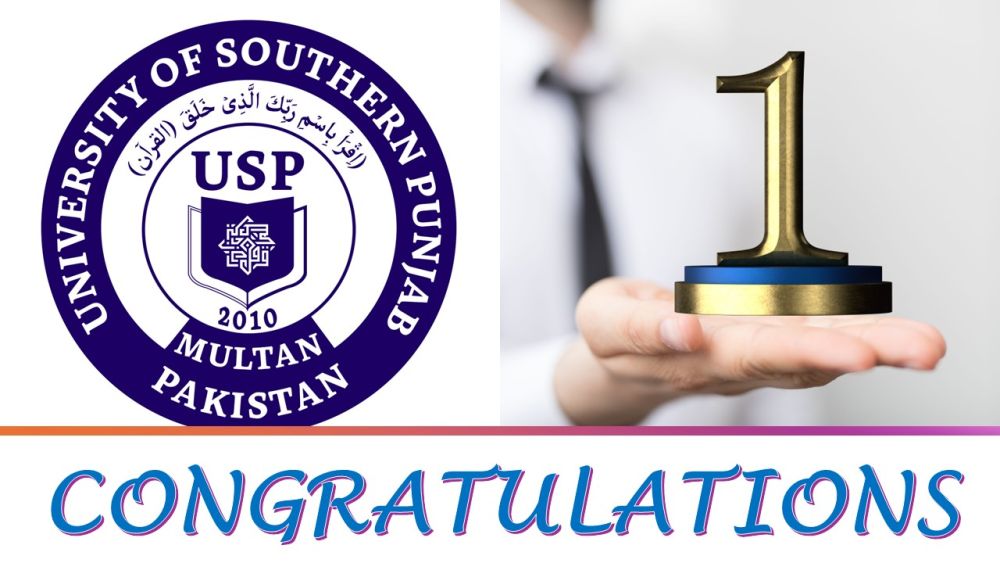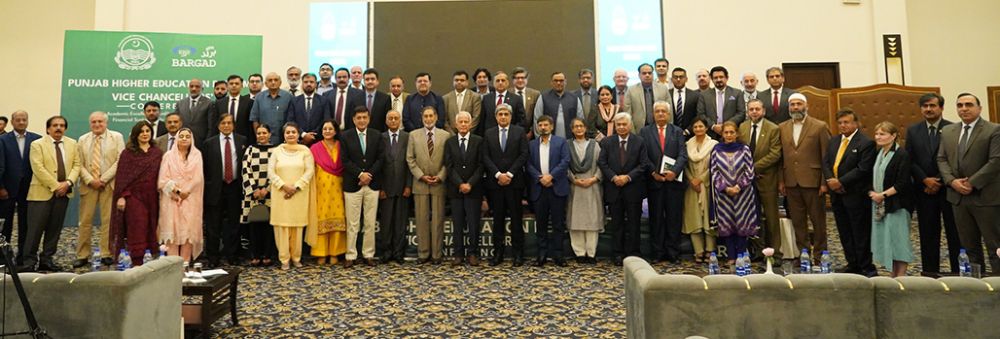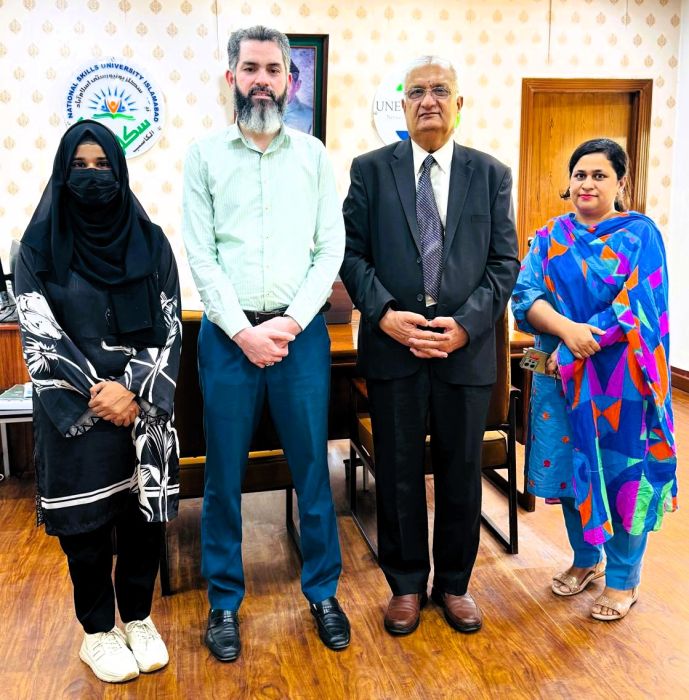59/25 Pakistan's Future Lies in Learning Skills Aligning with Emerging Technologies: A Pakistan Day Reflection
Posted 10 months ago
Today, as Pakistan celebrates March 23rd, Pakistan Day, reflect on the journey of a nation founded on justice, perseverance, and self-reliance. The Lahore Resolution of 1940, which set Pakistan's foundation, was a political manifesto and a call for a progressive and self-sustaining society. To realize the vision of its founding fathers, Pakistan must invest in skill-based education, an essential pillar for economic resilience and national prosperity.
Founding Fathers the Quaid-e-Azam and Allama Iqbal on Skills Education
Quaid-e-Azam Muhammad Ali Jinnah envisioned Pakistan as a modern, self-sufficient state, urging the youth to acquire an education beyond conventional knowledge. His famous words, "With faith, discipline, and selfless devotion to duty, there is nothing worthwhile that you cannot achieve," - resonate deeply in today's era of technological advancements. Jinnah believed in self-reliance, which can only be achieved when we equip our youth with the skills necessary to compete in a globalized economy. He also emphasized technical education, stating:
"A nation that does not develop its technical skills cannot progress. We must concentrate on science, technology, and vocational training to build a strong and prosperous Pakistan."
Similarly, Allama Iqbal, the philosophical architect of Pakistan, emphasized practical education as the key to revitalizing the Muslim Ummah. His poetry repeatedly calls for an awakening of selfhood through action, knowledge, and craftsmanship. He dreamt of a society where individuals were not just seekers of theoretical knowledge but also builders of industries and innovators of technology. In his immortal verses, he highlighted the importance of self-reliance and skill development:
خودی کو کر بلند اتنا کہ ہر تقدیر سے پہلے
خدا بندے سے خود پوچھے بتا تیری رضا کیا ہے
Iqbal's message inspires our youth, who are the architects of our future, to take charge of their destiny through education and technical expertise.
Islamic Perspective on Skills Education
The importance of skills is deeply rooted in Islamic teachings. The Holy Quran and the lives of prophets highlight the significance of craftsmanship and technical proficiency. Prophet Nuh (Noah, peace be upon him) built the Ark—a masterpiece of engineering that saved humanity. Prophet Dawood (David, peace be upon him) was a skilled blacksmith known for his expertise in armor-making. Prophet Idris (Enoch, peace be upon him) was a tailor, and Prophet Zakariya (Zechariah, peace be upon him) was a carpenter. These examples underscore that skilled work is an economic necessity and a noble pursuit, integral to human progress.
One of the most remarkable examples comes from the life of Prophet Muhammad (peace be upon him). A man once came to him, complaining that he had no livelihood. Instead of giving him charity, the Prophet (peace be upon him) asked him what he had in his house. The man replied that he had only a piece of cloth and a wooden bowl. The Prophet (peace be upon him) sold those items and advised the man to buy an axe with that money. He then instructed him to collect firewood and sell it in the market. Within a short period, the man could sustain himself and his family. This story teaches us that skills and hard work are the foundation of dignity and self-sufficiency.
Skills Education: The Key to Economic Growth
Pakistan's economy is at a crossroads, facing challenges such as unemployment, an unskilled labor force, and an overreliance on traditional job sectors. The solution is transforming our education system by integrating vocational and technical training. Institutions like the National Skills University Islamabad are at the forefront of this mission, ensuring that young Pakistanis are not just degree-holders but also problem-solvers, entrepreneurs, and industry leaders.
Countries like Germany, China, Singapore, and South Korea have built economic powerhouses by prioritizing technical education. For instance, Germany's dual education system combines classroom learning with on-the-job training and has been a key factor in its economic success. Pakistan must follow suit by bridging the gap between academia and industry, fostering innovation, and equipping its workforce with the skills necessary for the Fourth Industrial Revolution.
A Call to Action
On this Pakistan Day, let us pledge to embrace skills education as a national priority. The government should allocate more resources to vocational and technical training, the private sector should invest in apprenticeship programs and industry-relevant curricula, and academia should adapt its teaching methods to focus more on practical skills.
Organizations like NAVTTC, TEVTA, and Punjab Skills Development must collaborate to create an ecosystem in which skill development is not an afterthought but the foundation of our educational strategy.
Pakistan was built on the dreams of self-reliance, dignity, and economic independence. By empowering our youth with technical expertise, we can transform these dreams into a reality, ensuring that our nation stands tall among the global leaders of innovation and progress.
This Pakistan Day, the country must take concrete steps toward a skilled and prosperous Pakistan.





